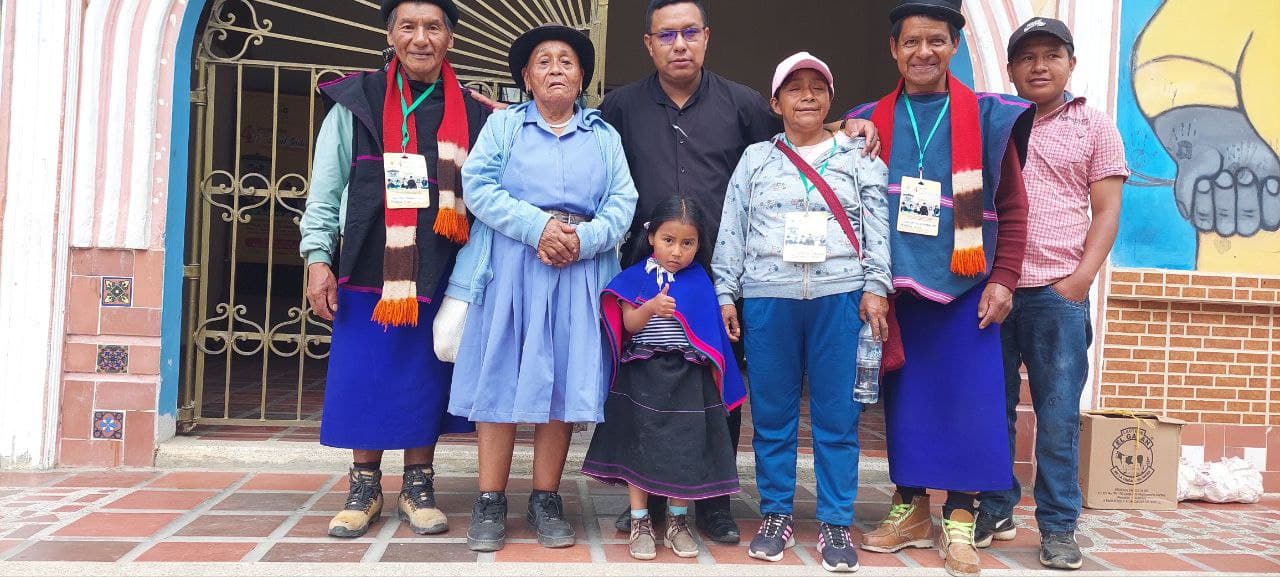SÃO PAULO, Brazil – Growing clashes between left-wing guerrillas, right-wing paramilitary groups, and security forces in the south of Colombia is causing rising concern in the Church.
The Catholic Church has been one of the major peace negotiators in the South American country and is especially worried about the peasants and Indigenous people impacted by the violence.
The armed conflict involves dissident groups of the Revolutionary Armed Forces of Colombia (FARC), which signed a peace deal with the Colombian government in 2016 and ceased to operate. Around 2,000 of its members, however, repudiated the agreement and have been continuing their armed actions under other names.
Another traditional guerrilla group, the National Liberation Army (ELN), which is currently taking part in a negotiation process with the government, is also active in the southern regions of Cauca and Nariño.
“The situation there is quite complex. Those groups are basically fighting for territory,” Father Hector Henao, episcopal delegate for relations between Church and State, told Crux.
Henao, who has been the Church’s negotiator in the peace talks with guerrilla groups for years, explained that the government in Nariño invited the local ELN for negotiations and it accepted, something that generated an internal controversy with the guerrilla’s central direction.
“The top commanders think that if there is a national peace dialogue, the Nariño group should not engage in a local negotiation. That situation led to a crisis in the national roundtable,” Henao said.
Such a disagreement may result in a new dissidence, which can intensify the overall complexity of the violence crisis.
Henao said the mounting disturbances in southern Colombia have been victimizing civilians and provoking the mass displacement of several communities from the three affected departments.
“Some communities cannot leave their territory and end up being surrounded by violence. They have been dealing with threats and extortion on a daily basis,” he said.
Many of such residents are Indigenous people, who have been major victims of the conflicts.
“Some clashes occur inside their lands. The Church has always accompanied those communities and fought for their lives and their dignity,” Henao said.
Luis Ariel Fiscué, a lay Catholic in charge of the Indigenous Pastoral Ministry in the Archdiocese of Popayán, is one of the Church leaders responsible for helping several Indigenous communities in the south.
“Indigenous groups are between the devil and the deep sea in the south of Colombia. They are under pressure from the security forces on the one hand and from the guerrillas on the other,” Fiscué told Crux.
Himself a member of the Indigenous Nasa group, Fiscué explained that the current guerrillas began organizing in the 1940s’ in order to struggle for their rights. Those movements were particularly strong in Cauca.
But they soon became armed groups. Right-wing organizations also established their armed branches and violence grew.
“Many Indigenous communities were gradually expelled to the hills and even to large cities like Medellin and Colombia,” Fiscué said.
He added that the government has historically taken advantage of that situation as well, sending armed groups to expel Indigenous communities from their territories in order to clear areas for oil extraction.
In the 1970s, the first Indigenous priest was ordained in Colombia, Father Alvaro Ulcué, also a member of the Nasa people. Fiscué described him as a great defender of the Indigenous communities in southern Colombia, a leader who assisted different groups to fight for their traditional territories against big landowners and the police. In 1984, he was shot dead by hitmen who were probably connected to local landowners.
“The conflict in the region has always resulted in a high number of deaths among Indigenous communities,” Fiscué said.
Those historical problems seem to be emerging again.
On March 16, Indigenous men were trying to rescue a student who had been kidnapped by a FARC dissident group. The guerrillas suddenly began to attack the men, injuring two of them and killing 53-year-old community leader Carmelina Yule Paví.
Catholic missionaries have also been targeted by armed groups. They had to adopt several measures of security since guerrillas frequently stop their cars on the road and ask them where they’re going.
“We face continuous danger. But that’s our mission, we have to go on,” Fiscué said.
Last week, local bishops issued a statement in which they spoke against the rising violence and asked the forces involved in the conflict for a de-escalation, to allow humanitarian aid to arrive to the people who need it and to permit the displaced communities to go back to their lands.
The letter was co-signed by Cardinal Luis José Rueda, who heads the Bishops’ Conference.
“The only way out of that situation is to keep dialoguing and looking for joint solutions that can offer alternative ways for the victims,” Henao said.












